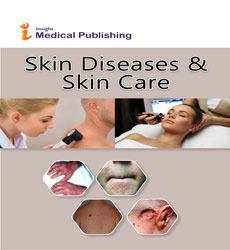Abstract
A Review of the Efficacy and Safety of Retinoids in the Treatment of Ultraviolet Related Skin Conditions and Skin Ageing
Retinoids refer to all natural and synthetic products having a structure or biological activities similar to vitamin A, which helps to modulate the function of homeostasis, metabolism, epithelial growth and immune regulation as well as inflammation via retinoid receptors. Recently, there has been a growing interest in retinoids in the management of UV-related skin conditions, including skin cancer, solar ageing as well as dyspigmentation, which cause a huge dermatological and psychological burden on patients. However, scientific evidence and a standard guideline of retinoids on these conditions are still limited. Skin cancer is caused by accumulative DNA damage by UVR along with an impaired DNA repair mechanisms. Retinoids seem to have a chemopreventive effect by modulating the repair processes and programmed cell death. Acitretin appears to be effective in the chemoprevention of SCC among OTRs but due to the side effects of systemic retinoids, the application should be limited to high-risk populations and the rebound effect may occur after discontinuing medication. UVR also causes skin ageing that leads to a structural and functional deterioration of skin. Wrinkling, mottled hyperpigmentation and solar lentigo can be improved by long-term use of topical retinoids, such as topical tretinoin an adapalene. The efficacy seems to be correlated with the strength of retinoids along with their side effects, which can gradually subside overtime. Thus, low concentration of retinoids along with an emollient as well as a sunscreen application should be introduced during the initiating period to avoid drug interruption or discontinuation. Due to several limitations of clinical studies, the efficacy of cosmeceutical products on skin ageing is still controversial. Besides, long-term use of topical tretino in may improve melasma but a treatment combination along with topical retinoids is suggested to yield a satisfactory result with minimal side effects.(OTR- Organ transplant recipient, SCC- Squamous cell carcinoma, UVR-Ultraviolet radiation).
Author(s):
Kiticharoensak Ornrapee and Mark Tang
Abstract | PDF
Share this

Google scholar citation report
Citations : 94
Skin Diseases & Skin Care received 94 citations as per google scholar report
Abstracted/Indexed in
- Google Scholar
- Publons
- Secret Search Engine Labs
Open Access Journals
- Aquaculture & Veterinary Science
- Chemistry & Chemical Sciences
- Clinical Sciences
- Engineering
- General Science
- Genetics & Molecular Biology
- Health Care & Nursing
- Immunology & Microbiology
- Materials Science
- Mathematics & Physics
- Medical Sciences
- Neurology & Psychiatry
- Oncology & Cancer Science
- Pharmaceutical Sciences
